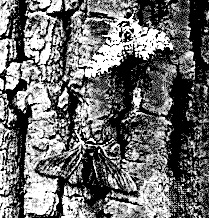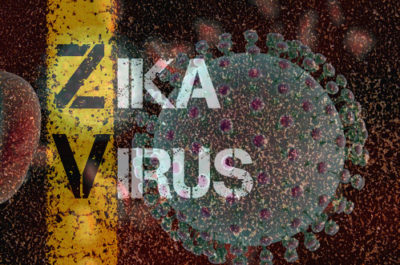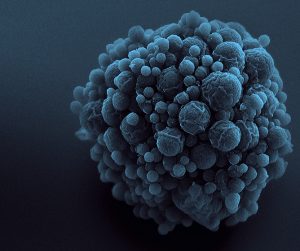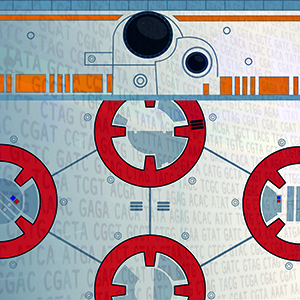by Richard William Nelson | Jul 28, 2016
 In the native land of Charles Darwin, for the first time, the Royal Society is challenging evolutionary academia to develop a new theory of biological evolution. As the original science organization in Western Civilization, the Society explains the problem with today’s most popular current theory:
In the native land of Charles Darwin, for the first time, the Royal Society is challenging evolutionary academia to develop a new theory of biological evolution. As the original science organization in Western Civilization, the Society explains the problem with today’s most popular current theory:
“Developments in evolutionary biology and adjacent fields have produced calls for revision of the standard theory of evolution, although the issues involved remain hotly contested.”
Increasingly, the standard theory of evolution has been challenged in the wake of the twentieth-century genomic revolution.
Continue Reading
by Richard William Nelson | Jun 29, 2016
 Britain’s peppered moth has long served as an iconic example of evolution. This month, a new genetic discovery sheds light on the moth’s once-iconic status. As ScienceDaily reports –
Britain’s peppered moth has long served as an iconic example of evolution. This month, a new genetic discovery sheds light on the moth’s once-iconic status. As ScienceDaily reports –
Researchers from the University of Liverpool have identified and dated the genetic mutation that gave rise to the black form of the peppered moth, which spread rapidly during Britain’s industrial revolution. The new findings solve a crucial missing piece of the puzzle in this iconic textbook example of evolution by natural selection.”
Continue Reading
by Richard William Nelson | May 19, 2016
 “The Brain defects caused by the Zika virus could set evolution back 2 million years, scientists claim” was the leading story in the UK’s Daily Mirror in February. Since then, the global spread of the Zika virus, previously known as a rare virus, continues as a leading headline story – for good reasons. As CNN reports, “This is the first time a mosquito has been found to cause congenital birth defects.”
“The Brain defects caused by the Zika virus could set evolution back 2 million years, scientists claim” was the leading story in the UK’s Daily Mirror in February. Since then, the global spread of the Zika virus, previously known as a rare virus, continues as a leading headline story – for good reasons. As CNN reports, “This is the first time a mosquito has been found to cause congenital birth defects.”
The New England Journal of Medicine published the article entitled “Zika virus and Birth Defects — Reviewing the Evidence for Causality” on April 13, written by a team headed by Sonja Rasmussen at the U.S. Centers for Disease Control and Prevention (CDC).
Continue Reading
by Richard William Nelson | Apr 21, 2016
 J. Craig Venter, best known for being the first to sequence the human genome in 2000, is recognized as one of the leading scientists of the 21st century. Ten years after his essential accomplishment, Venter was credited for successfully recreating “the first synthetic species” in 2010, named Mycoplasma laboratorium.
J. Craig Venter, best known for being the first to sequence the human genome in 2000, is recognized as one of the leading scientists of the 21st century. Ten years after his essential accomplishment, Venter was credited for successfully recreating “the first synthetic species” in 2010, named Mycoplasma laboratorium.
In his relentless pursuit to “understand the molecular and biological function of every gene in a cell,” Venter released the latest findings discovered in his genetics research laboratory in Southern California. The paper, entitled “Design and Synthesis of a Minimal Bacterial Genome,” was published on March 25, 2016, in the journal Science. The findings have emerged as a new genomic evolution nightmare for Craig Venter.
Continue Reading
by Richard William Nelson | Mar 3, 2016
 R2D2, short for Artoo-Detoo, is best known as the fictional robotic character in the Star Wars universe series created by George Lucas. Inducted into the Robot Hall of Fame in 2003, R2D2 has since been included in the Smithsonian Institution’s list of 101 Objects that Made America.
R2D2, short for Artoo-Detoo, is best known as the fictional robotic character in the Star Wars universe series created by George Lucas. Inducted into the Robot Hall of Fame in 2003, R2D2 has since been included in the Smithsonian Institution’s list of 101 Objects that Made America.
R2D2 is the good guy, the favorite character of George Lucas, known for always saving the day at least once in every film. However, R2D2 disses Darwin.
In the realm of biology, however, the R2d2 gene is a Darth Vader villain terrorizing Darwin’s once-popular theory.
Continue Reading
 In the native land of Charles Darwin, for the first time, the Royal Society is challenging evolutionary academia to develop a new theory of biological evolution. As the original science organization in Western Civilization, the Society explains the problem with today’s most popular current theory:
In the native land of Charles Darwin, for the first time, the Royal Society is challenging evolutionary academia to develop a new theory of biological evolution. As the original science organization in Western Civilization, the Society explains the problem with today’s most popular current theory:
 Britain’s
Britain’s  “The Brain defects caused by the Zika virus could set evolution back 2 million years, scientists claim” was the leading
“The Brain defects caused by the Zika virus could set evolution back 2 million years, scientists claim” was the leading 

